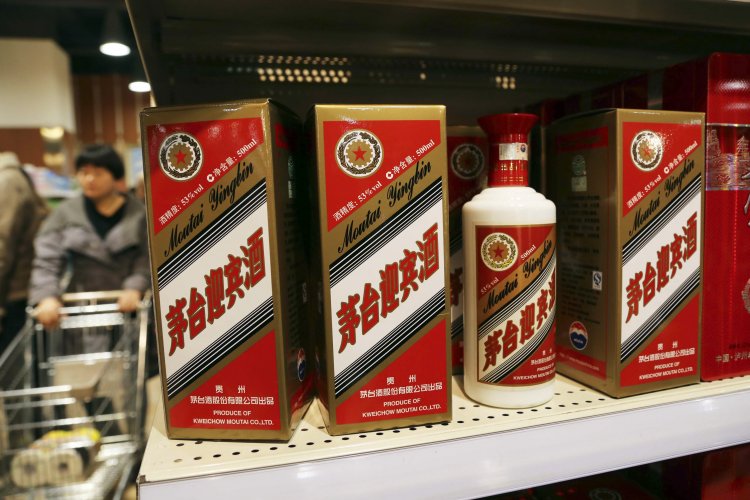Trending in Beijing: P2P Protests, ‘Uncle Olympics,’ and Dog Poisonings
A wrap-up of the top stories and hashtags Beijingers have been discussing on Chinese social media this week, exclusively for the Beijinger by What’s on Weibo editor-in-chief Manya Koetse.
1) The P2P (Failed) Protests in Beijing
Thousands of duped investors planned to gather in the capital – but police quickly shut the protest down.

One of the biggest Beijing topics on Chinese social media this week was also the most controlled one, both online and offline, after recent crackdowns on China’s online P2P lending industry caused unrest and anger across the county. When thousands of duped investors planned to take their grievances to the streets of Beijing’s financial district, security forces were quick to shut down their protests.
The online peer-to-peer (P2P) lending industry has been booming in China over the past decade. Since this ‘shadow banking’ industry is largely unregulated, and frauds are ubiquitous, experts have since long been critical of this online non-state lending business. At a previous talk at the Beijing Bookworm, financial analyst Andrew Collier already called the developments, which distribute capital outside the formal banking system, a “risky business.”
As of this year, Chinese authorities have implemented stricter monetary policies and renewed regulations, which have led to a wave of closures. Amid the chaos and panic of these recent regulatory crackdowns, dozens of company CEOs simply took the money and ran. For many people, the recent developments have been disastrous, causing them to lose all of their investments.
Over the previous weeks, WeChat was already buzzing with rumors of people who were victimized by the P2P crackdown to gather and protest around Beijing’s financial district. But local authorities got wind of the news before the protests could even take place. They barred people from coming to Beijing’s financial district last Monday; some already being halted on the high-speed train, while others were barred at local metro stations.
Some dramatic bystander videos have since been making their rounds online, showing how people were forcefully taken away by police or being questioned on the train. On Twitter, on-the-scene journalist Becky Davis (@rebeccaludavis) reported how at least 120 public buses at the site, near the China Banking Regulatory Commission, were rounding ‘protesters’ off. “[I] have truly never seen anything like this in Beijing!” Davis wrote.
2) Where is ‘Olympic Uncle’?
An online search for an Olympics migrant worker has gone viral.

As you’ve probably noticed, this week marked the 10-year anniversary of the Beijing Olympics. While this anniversary was making plenty of headlines in mainstream media, one small inquiry on Weibo about a moment that occurred during the Olympics 10 years ago got particularly big this week.
A Weibo user named “Small-Bee-Bee” posted a photo, writing:
“I went to the Olympics in 2008 when I came across an ‘uncle’ migrant worker at the Water Cube. He bashfully asked us if we would take his picture. He was one of the many construction workers of the Olympic venue and wanted some souvenir photos before leaving Beijing. He left me an address in his home village to send the photos to. But unfortunately, the address turned out to be incorrect and the letter was returned to me. Looking at his proud expression, this was perhaps a moment of pride that’s very dear to him. I’m looking for ‘Uncle Olympics’ now; I don’t know where he is nowadays, but I hope he’s been well and happy over the past 10 years. I hope he’ll be able to see his own picture on the internet.”
Apart from one photo taken at the Water Cube, ‘Small Bee Bee’ also posted a photo of the migrant worker in front of the Beijing Bird’s Nest.
Over the past week, many netizens and big-Vs (online influencers) sympathized with the poster and ‘Uncle Olympics,’ and spread the news of the search under various hashtags, including ‘Searching for Olympic Uncle’ (#寻找奥运叔叔#).
As we now know, the Olympics were a moment of celebration for many, but a time of hardship for many migrant workers. Migrant workers who worked on the city’s Olympic projects were sent back to their rural homes as part of the pre-Olympics city clean-up. Their work for the Olympic venues was also not without danger; although the exact number remains contested, people were killed while working Olympic facilities.

The viral search has led to a happy ending in this case. On Aug 10, Small Bee Bee reported on their Weibo account that they had succeeded in tracing down ‘Uncle Olympics.’
The former construction worker named Yang is now working in Beijing as an electrician and has since become a grandfather. Albeit 10 years later, his proud photos of the Olympics will soon be delivered to his (correct!) address.
3) Beijing Dog Killers on the Loose
Keep your pets safe!

Beijing’s dog killers have almost become somewhat of an urban myth in the city. As early as 2008, I can remember a friend’s dog being killed by eating a poisonous snack that was placed around a lawn nearby a Beijing Chaoyang apartment complex.
Apparently, things have not changed. This week, discussions on Beijing’s ‘dog killers’ have flared up again on social media when netizens exposed the deaths of multiple dogs around the Beijing Shijitan area, where they were allegedly poisoned.
The online controversy got especially heated on Aug 9, when it came to light that there were people posting detailed information online on how to kill dogs by putting poison in sausages or other food, and then leave these baits on local lawns for animals to eat. These posts, allegedly published by people opposing to unleashed dogs in their neighborhoods, have since been deleted.
The poison used for the baits, according to People’s Daily, is ‘Isoniazid,’ also known as isonicotinohydrazide, a prescription drug that is used for the treatment of tuberculosis and can be deadly when dogs and cats ingest them. Although beneficial to humans, dogs (or cats) could die within 20 minutes of ingesting it.
At the time of writing, the hashtag “Isoniazid Dog Poisoning” (#异烟肼毒狗#) has been viewed over 5.5 million times on Weibo.
Many netizens ask: “How are we going to solve this problem?” For now, we’d recommend you to keep your dogs leashed and pay close attention to what they might be eating when outside.
To see more topics that have been trending in the capital recently, click here.
By Manya Koetse @manyapan
What’s on Weibo editor-in-chief
Manya Koetse is the editor-in-chief of www.whatsonweibo.com/. She is a writer and consultant (Sinologist, MPhil) on social trends in China, with a focus on social media and digital developments, popular culture, and gender issues.
Photos: Agence France-Presse, Weibo (@small-bee-bee), Weibo







